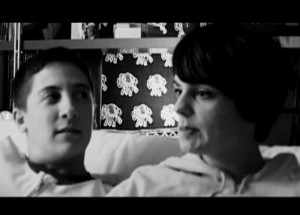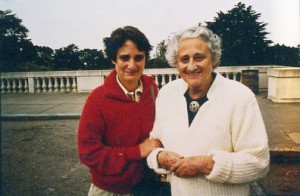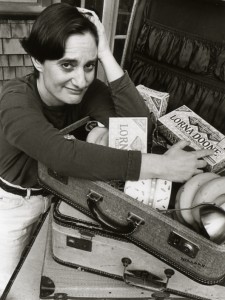Synopsis:
Through reenactments, interviews, and both informal and structured conversations, filmmaker and subject Jules Rosskam deconstructs the idea of a singular trans narrative. His reflexive film acts more as an intersectional conversation and discussion instigator than as a traditional story-telling documentary. The scenes in the film, which vary in type from confessionals to individual/group interviews to reenactments to dinner table conversations to “behind the scenes” footage, not only respectively contain challenging and controversial conversation, but also engage in conversation with each other, working cohesively to deconstruct the idea of one cohesive trans experience.
Rosskam, often using his own experiences, aptly addresses some of the most pressing, yet coded and hidden topics of FTM trans experiences both through reenactments and his own narrative. These topics include navigating the healthcare system as a transperson, transitioning while in a relationship, evolution from one part of the queer community to another, personal physical comfort in contrast with social perceptions, and constructions of both feminism and masculinity. While representing several experiences of FTM folks and those who surround them, the film also seeks express the importance of individual experiences and the multifaceted and varying aspects of physical and social gender transition.
The film also captures sociopolitical stances of a time around 2008 through its subject’s statements. This was timestamp was particularly noticeable in a conversation about feminism; a group of men are prompted to discuss feminism, and one states, “I wouldn’t go out and say I’m a feminist… I identify as a feminist but I don’t know if that’s a thing I should say.” Rosskam, who certainly engages with more current ideas about feminism and gender, introduces ideas that are just now (in 2015) starting to enter more mainstream vocabulary. Most prevalently are the concepts of passing and an idealized narrative; “the idealized narrative of what it means to be trans has become so pervasive that ultimately we’re all in process to get to a certain endpoint, and that endpoint is to be passable and read as a man or a woman in a world. And then if you’re not passable and read as a man or woman in this world, then clearly you haven’t finished yet.” Rosskam further challenges the binary that sits at the core of the idealized narrative, using footage of himself talking to his girlfriend about his social transition: “I’m afraid you’re going to lump me in with men – and I don’t see myself that way, I don’t identify myself that way.” Furthermore, Rosskam directly confronts the intersectionality that is too often ignored when discussing trans issues and narratives by asking his subjects “how do you think that your race and class impact your transition?” and related questions.
While Rosskam’s film is not a comprehensive view of trans lives, it offers a glance at many pivotal (and often silenced) issues. His involvement in the film (which ranges from confessional footage of himself, to vlogs with his girlfriend, to him appearing on screen to sync sound with audio) gives a humble tone of reflexivity and determination for self growth within an ever-expanding, intersectional, and complicated community that exists within a world designed to work against exactly the identities fostered in his community.
Related Subjects: Gender Studies, Feminist Studies, Queer Studies, Health Studies, Identity Politics
Critic Responses:
“Employing roundtable discussions, confessional on-camera monologues, acted-out skits, rehearsals of the acted-out skits, and rather fine rap poetry, the film can be applauded as an important tool for classroom use, but as a finished product for mass appreciation, Against is too haphazard, too unstructured, too insular. It’s a slightly amateurish paean to academic solipsism broken up by numerous episodes of power.”
“It is inarguable that documentary is meant to create a motion, but “Against a Trans Narrative” does more than this. It creates a conversation, which is the first step towards understanding. Watching films such as these will encourage people to push for an open dialogue about how to make not only Colgate, but society more accepting.”
– Reyna LaRiccia, Colgate Maroon-News
Bibliographic items:
Raun, Tobias. “Out Online: Trans Representation and community building on YouTube.” Roskilde University. http://rucforsk.ruc.dk/site/files/40335798/Tobias_final_with_front_page_pfd.pdf
Rosskam, Jules. “The ties that bind are fragile and often imaginary: Community, identity politics, and the limits of representation.” Women & Performance: A Journal of Feminist Theory. http://www.tandfonline.com/doi/abs/10.1080/0740770X.2010.529256
William, Gabe. “How I knew I was Trans: My Story and the Trans Narrative.” Youtube. https://www.youtube.com/watch?v=jo3Qav6cLtY





